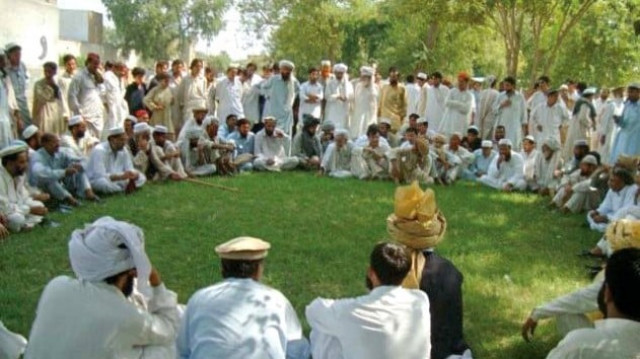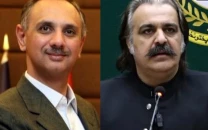Whither Frontier Crimes Regulation

Political authorities assured the tribesmen of the government’s help in their repatriation if they guaranteed they would abide by a controversial clause of a late 19th century British law. The law codified as the Frontier Crimes Regulations (FCR) was an ingenious legal regime engineered by the British rulers in 1901 to govern the ruthless and unruly tribesmen living in what is now called the Federally Administered Tribal Areas, or FATA.
Under the clause of the FCR, an entire community, or tribe, is deemed responsible for the actions of an individual originating from that community or tribe. This clause has been criticised by tribesmen and by mainstream political parties for being draconian and contrary to norms of justice. Tribesmen have been demanding of successive Pakistani governments to repeal the British era law.
But to no avail. After the Pakistan People’s Party came to power as a result of the 2007 election, Prime Minister Yousaf Raza Gilani had announced on the floor of the National Assembly that the draconian law would be abolished – much to the relief of tribesmen. But everybody knew that it was not possible, especially in the absence of a pre-arranged alternative system. However, the government was soon distracted by internal political squabbling leading more to deadlock on the issue rather than the fulfillment of the progressive initiative.
On August 14, 2009, President Asif Ali Zardari also announced political, judicial and administrative reforms for FATA. The reforms envisaged allowing political activities in FATA, establishment of an appellate tribunal, cut in arbitrary powers of political agents, giving people the right to appeal and bail, excluding women and children from the territorial responsibility clause and audit of accounts by the auditor-general. But the promise is yet to materialise.
Abdul Karim Mehsud, a lawyer from FATA, says the FCR is against the spirit of Pakistan’s constitution, and against all norms of a civilised society. “In fact, the FCR is a tool in the hands of the bureaucracy. There is not a single judicial officer in FATA’s courts and revision and appellate courts are also headed by bureaucrats,” Mehsud told The Express Tribune. Referring to the prevailing situation in the tribal belt, Mehsud said the tribesmen needed a powerful forum, be it a FATA council, a Jirga or an assembly elected by people through adult franchise.
“No need for head scratching. It’s easy. The only thing that the president – being the head of FATA – needs to do is to issue an administrative order to this effect and a tribal Jirga will approve it,” he explained. Professor Dr Fazl Rahim Marwat of Peshawar University’s Area Study Centre does not see any prospects of reforms in FATA in the near future because, according to him, the government does not have the will.
Khalid Aziz, a former chief secretary of Khyber Pakhutnkhwa and Political Agent of North Waziristan, believes that the ongoing insurgency in FATA is, in fact, a war for reforms. “There is a need for another amendment in the constitution to introduce reforms in the region,” Aziz told The Express Tribune referring to the 18th Amendment Act. He said that the government must introduce reforms in FATA.


















COMMENTS
Comments are moderated and generally will be posted if they are on-topic and not abusive.
For more information, please see our Comments FAQ